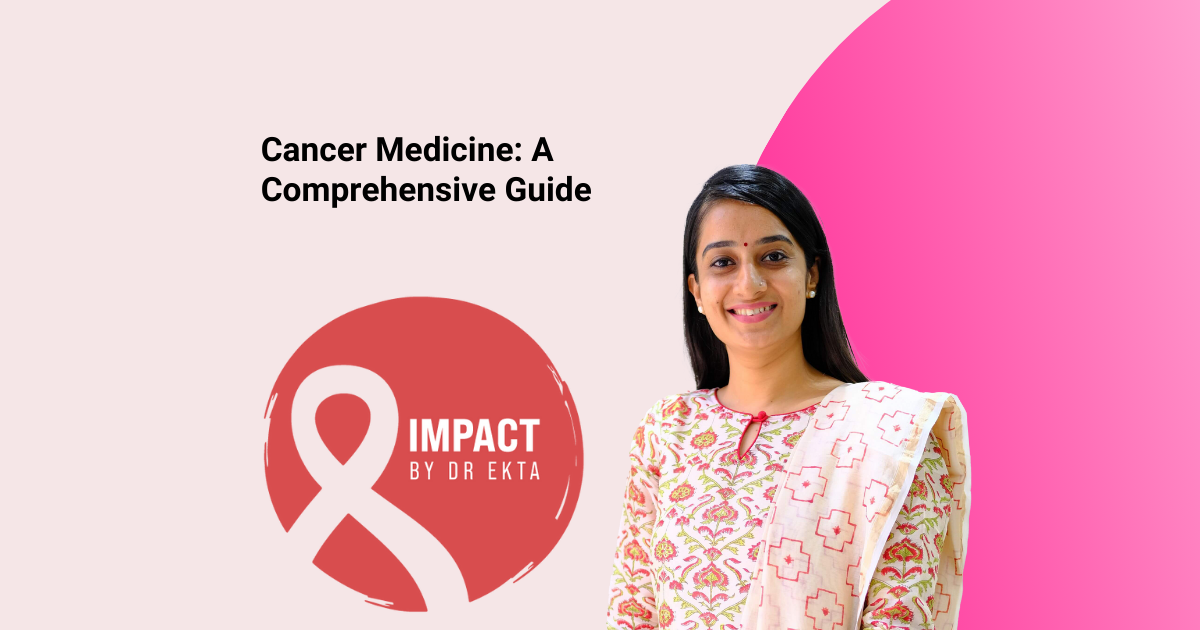As an oncologist, I have had the privilege and responsibility of guiding countless patients through the complexities of cancer diagnosis, treatment, and management. One of the most critical aspects of this journey is understanding the role of cancer medicine. In this comprehensive guide, I will share insights into the various types of cancer medicine, how they work, and what patients can expect during their treatment.
Understanding Cancer Medicine
Cancer medicine encompasses a wide range of drugs and therapies designed to treat cancer by targeting and destroying cancer cells, preventing their growth and spread, or alleviating symptoms. The choice of cancer medicine depends on several factors, including the type and stage of cancer, the patient’s overall health, and specific genetic or molecular characteristics of the cancer.
There are several main categories of cancer medicine, each with a unique mechanism of action and application in cancer treatment:
Chemotherapy
Chemotherapy is perhaps the most well-known form of cancer medicine. It involves the use of powerful drugs that target rapidly dividing cells, including cancer cells. Chemotherapy can be administered orally or intravenously and is often used in combination with other treatments such as surgery or radiation therapy.
Targeted Therapy
Targeted therapy represents a more precise approach to cancer treatment. Unlike chemotherapy, which affects all rapidly dividing cells, targeted therapy drugs specifically attack cancer cells by interfering with specific molecules involved in their growth and survival. This can lead to fewer side effects and improved outcomes for patients with certain types of cancer.
Immunotherapy
Immunotherapy is a revolutionary form of cancer medicine that harnesses the power of the patient’s own immune system to fight cancer. These therapies can boost the immune response against cancer cells or mark them for destruction by the immune system. Immunotherapy has shown remarkable success in treating cancers like melanoma, lung cancer, and certain types of lymphoma.
Hormone Therapy
Hormone therapy is used to treat cancers that are driven by hormones, such as breast and prostate cancer. By blocking the production or action of these hormones, hormone therapy can slow or stop the growth of cancer cells. This type of cancer medicine is often used in conjunction with other treatments to improve outcomes.
Stem Cell Transplant
While not a traditional drug, stem cell transplant is a critical aspect of cancer medicine for patients with blood cancers like leukemia and lymphoma. This procedure involves replacing damaged bone marrow with healthy stem cells, which can then develop into new, healthy blood cells.
Precision Medicine
Precision medicine is an emerging field that tailors cancer treatment to the individual characteristics of each patient’s cancer. By analyzing genetic mutations and other molecular features, doctors can select the most effective cancer medicine for each patient, leading to personalized and often more effective treatment plans.
How Cancer Medicine Works
The effectiveness of cancer medicine relies on its ability to target and destroy cancer cells while minimizing damage to normal cells. Here’s a closer look at how some of these therapies work:
Chemotherapy disrupts the cell cycle, preventing cancer cells from dividing and growing. However, because it also affects healthy cells that divide rapidly (such as those in the hair follicles and digestive tract), chemotherapy can cause side effects like hair loss, nausea, and fatigue.
Targeted therapy focuses on specific molecules involved in cancer growth, such as proteins or genes. By blocking these targets, the drugs can inhibit cancer cell proliferation or induce cell death. This specificity often results in fewer side effects compared to chemotherapy.
Immunotherapy enhances the body’s natural immune response to cancer. For example, checkpoint inhibitors block proteins that prevent the immune system from attacking cancer cells, while CAR-T cell therapy involves modifying a patient’s T cells to better recognize and attack cancer cells.
Hormone therapy interferes with hormone signaling pathways. In breast cancer, for instance, drugs like tamoxifen block estrogen receptors, thereby reducing the growth-stimulating effects of estrogen on cancer cells.
Managing Side Effects
While cancer medicine has revolutionized cancer treatment, it often comes with side effects that can impact a patient’s quality of life. Managing these side effects is a crucial aspect of cancer care. Common side effects and their management include:
Nausea and Vomiting: Anti-nausea medications, dietary changes, and complementary therapies like acupuncture can help alleviate these symptoms.
Fatigue: Regular physical activity, adequate rest, and nutritional support are essential for managing fatigue.
Hair Loss: While distressing, hair loss is usually temporary. Patients can explore options like wigs, scarves, and cooling caps to mitigate hair loss.
Infections: Because cancer medicine can weaken the immune system, patients are at increased risk of infections. Preventive measures, including vaccinations, good hygiene, and prompt treatment of infections, are critical.
The Future of Cancer Medicine
The field of cancer medicine is continually evolving, with new therapies and technologies on the horizon. Advances in genetic and molecular research are paving the way for even more personalized and effective treatments. Emerging therapies, such as oncolytic viruses, which selectively infect and kill cancer cells, and CRISPR-based gene editing, hold great promise for the future of cancer treatment.
Moreover, the integration of artificial intelligence and big data in cancer research is enhancing our ability to predict treatment responses and develop new cancer medicine. Clinical trials remain a vital component of this progress, offering patients access to cutting-edge treatments while contributing to the advancement of cancer care.
Conclusion
Cancer medicine is a diverse and rapidly advancing field, offering hope and improved outcomes for millions of patients worldwide. From traditional chemotherapy to cutting-edge immunotherapy and precision medicine, the range of available treatments allows for more personalized and effective cancer care. As an oncologist, I am committed to guiding my patients through this complex landscape, providing them with the knowledge and support they need to make informed decisions about their treatment.

